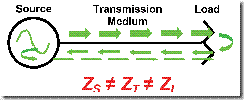
Impedance mismatch is a concept from electronics that is gaining some mindshare as an IT metaphor. It occupies the same social space that cognitive dissonance once did, and works in pretty much the same way to describe any sort of discontinuity. It is currently being used in IT to describe the difficulty inherent in mapping relational structures, such as relational databases, to object structures common in OOP. It is shorthand for a circumstance in which two things don’t fit.
Broadening the metaphor a bit, here is my impedance mismatch. I like reading philosophy. Unfortunately, I also like reading comic books. I’m not a full-blown collector or anything. I pick up comics from the library, and occasionally just sit in the bookstore and catch up on certain franchises I like. I guess that in the comic book world, I’m the equivalent of someone who only drinks after sun-down or only smokes when someone hands him a cigarette, but never actually buys a pack himself. A parasite, yes, but not an addict.
The impedance mismatch comes from the sense that I shouldn’t waste time reading comics. They do not inhabit the same mental world that the other things I like to read do. I often sit thinking that I ought be reading Schopenhauer, with whom I am remarkably unfamiliar for a thirty-something, or at least reading through Justin Smith’s new book on WCF Programming, but instead find myself reading an Astro City graphic novel because Rocky Lhotka recommended it to me. The problem is not that I feel any sort of bad faith about reading comic books when I ought to be reading something more mature. Rather, I fear that I am actually being true to myself.
A passage from the most recent New Yorker in an article by Jonathan Rosen nicely illustrates this sort of impedance mismatch:
Sometime in 1638, John Milton visited Galileo Galilei in Florence. The great astronomer was old and blind and under house arrest, confined by order of the Inquisition, which had forced him to recant his belief that the earth revolves around the sun, as formulated in his “Dialogue Concerning the Two Chief World Systems.” Milton was thirty years old—his own blindness, his own arrest, and his own cosmological epic, “Paradise Lost,” all lay before him. But the encounter left a deep imprint on him. It crept into “Paradise Lost,” where Satan’s shield looks like the moon seen through Galileo’s telescope, and in Milton’s great defense of free speech, “Areopagitica,” Milton recalls his visit to Galileo and warns that England will buckle under inquisitorial forces if it bows to censorship, “an undeserved thraldom upon learning.”
Beyond the sheer pleasure of picturing the encounter—it’s like those comic-book specials in which Superman meets Batman—there’s something strange about imagining these two figures inhabiting the same age.

Bugger that for a lark. I thought the whole point of postmodernism was to let us wallow in popular tripe and still play the cool intellectual wanker to our pretentious chums. Where’s your Lyotard now?
But, er, I feel like a probably ought to be reading more Schopenhauer, too.
I was briefly worried that I was missing out on some important, new technology, but I see that ‘W’ is for ‘Windows’ (quoth the Penguinista).
Problem solved! Graphic novels are for grown-ups, now…it’s the perfect topic for your next paper submission to the Journal of Popular Culture.
Paul,
There’s the postmodern stuff, certainly, and I do take some comfort in the conflation of high-brow and low-brow culture they legitimized through the ‘legitimation crisis’ they manufactured. (Reminds me of Alan Moore’s Watchmen.) At the same time, it feels so very 1990’s though, doesn’t it?
Detailed item and assertion on Impedance Mismatch. Not all can hold the identical sentiments or experience. I reckon I concur with this blogs positioning. An article a day keeps the comments arriving.